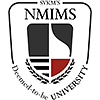MA Psychology Syllabus and Subjects
MA Psychology course teaches individuals to think critically, regardless of the situation which plays an important role mainly in research and is integrated throughout their studies. Some of the MA Psychology subjects include mental processes, motives, reactions, feelings, conflict resolution, crisis management, motivation, and nature of mind. MA Psychology job scope provides various career opportunities with a wide range of job roles.
Semester Wise MA Psychology Syllabus
The MA in Psychology subjects is distributed in core and elective subjects. MA Psychology course is aimed to introduce students to the science of behaviour and mind, including conscious and unconscious phenomena, as well as feeling and thought. Listed below are the MA Psychology subjects list according to the semesters:
MA Psychology First Year Syllabus
|
Semester I |
Semester II |
| Experimental Psychology | Systems and Theories |
| Social Psychology | Systems and Theories |
| Research Methods and Statistics | Cognitive Psychology |
| (i) Practical & (ii) Profiling of Equipments | Social Psychology |
MA Psychology Second Year Syllabus
|
Semester III |
Semester IV |
| Psychopathology and Clinical Psychology | Physiological Psychology |
| Mental Abilities | Cognitive Psychology |
| Organizational Psychology | Psychological Testing |
| Principles and Applications of Guidance | Psychometrics |
| Human Development | Personality |
MA Psychology Subjects
Psychology MA syllabus includes both core and elective subjects. Psychology as a course teaches individuals to think critically, regardless of the situation which plays an important role mainly in research and is integrated throughout their studies.
There are both core and elective subjects in the curriculum. Additionally, students are expected to work on research projects based on their specialization. Listed below are the subjects in MA Psychology:
- Mental Abilities
- Organizational Psychology
- Principles and Applications of Counselling
- Life Span Human Development
- Psychometrics
- Personality
- Physiological Psychology
- Cognitive Psychology
- Psychological Testing
MA Psychology Core Subjects
The core MA Psychology subjects list of essential subjects that all MA Psychology students study irrespective of their optional subject choices is as follows:
- Principles of Psychology
- Cognitive Psychology
- Psychology of Life Span Development
- Psychopathology
- Physiological Psychology
- Psychological Testing
- Research Methodology
- Personality
- Social Psychology
- Clinical Psychology
- Organizational Behavior
- Counselling Psychology
- Health Psychology
MA Psychology Practicals
- Psychological Testing Practicals
- Cognitive Psychology Practicals
- Project
- Case Studies
MA Psychology Elective Subjects
- Educational Psychology
- Rehabilitation Psychology
- Indian Psychology
- Parapsychology
MA Psychology Course Structure
The MA Psychology course structure is designed to ensure that the students have access to all the important and relevant information they need to become successful psychologists. Since the course is a master’s program, it is very important that the student learns about the subject in great detail and depth.
Along with the coursework, students are given a chance to participate in industry work placements or internships as it can help them build a rewarding career and resume. The course structure is given below:
- IV Semesters
- Core Subjects
- Elective Subjects
- Internships
- Research Projects
MA Psychology Teaching Methodology and Techniques
The MA Psychology teaching methods and techniques consist of both theoretical and practical forms of teaching. The practical form of teaching consists of lab practicals as well as internships.
This also gives the students a chance to ask any questions or queries they may have. Listed below are the teaching methodology and strategies in general:
- Traditional Classroom-Based Teaching
- Practical Lab Workshops
- Guest Speakers
- Seminars
- Internships
MA Psychology Projects
When students pursue an MA in Psychology, they are expected to work on a research project in the final semester. This project helps the students to explore a topic in detail. Since the MA in Psychology course is a master’s program, the graduates get a chance to study the course work in great detail and depth. The research project also helps the teachers and professors to assess the students' understanding of the specific subject and specializations. Listed below are some of the popular MA Psychology project topics:
- Systems and Theories
- Cognitive Psychology
- Social Psychology
- Mental Abilities
- Organizational Psychology
- Principles and Applications of Guidance
- Human Development
- Psychometrics
- Personality
MA Psychology Reference Books
When pursuing a MA Psychology course, it is a good practice amongst the students to invest in reference books. These books can help the students to learn about the specialization and topics in greater depth. Students can purchase these books or download the MA Psychology books PDF online. Listed below are some of the popular books on the subject:
|
Name of Book |
Author |
|
A dictionary of psychology |
Andrew Coleman |
|
The Psychology Book |
Catherine Collin |
|
APA Handbook of the Psychology of Women |
Jacquelyn W. White, Cheryl Brown Travis |
























